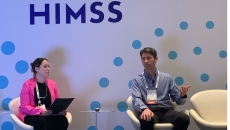Workflow
Northern Health has started digitising its various patient care programs through a single virtual platform.
"What data do you have? Where is it located? How do you get to it? And is the data fit for purpose? Data doesn't need to be perfect to be useful. But you don't ever want to use data that's not perfect and not know it."
The advantages of working in rural healthcare, including speed to market in developing and testing new programs, outweigh the challenges, says Dr. Priscilla Frase, Ozarks Healthcare CMIO and 2024 Changemaker Award recipient.
Emergency medical response information isn't used enough in healthcare. Agencies are looking to align with TEFCA, seeking partners to improve interoperability with state EMS systems and to build out technical resources for bidirectional exchange.
So you've decided to build internally. Now what? Product management partnerships, devoted teams and future planning for technology refreshes will be key.
The TigerConnect clinical communication platform aims to reduce communication gaps that can cost hospitals and contribute to medical errors, explains Dr. Will O'Connor, TigerConnect's CMIO.
Health systems should embrace transparency to keep patients connected and informed – and to avoid losing them to retail clinics and other nontraditional providers, says Dr. Geeta Nayyar, MDI Health's executive clinical advisor.
Doing away with traditional manual coding has enabled Mount Alvernia Hospital's IT team to focus more on innovation rather than "reinventing the wheel," shares technology director Bruce Leong.
Robert Slepin, a longtime IT exec at provider organizations who's now a top consultant at Epic, discusses his role, and how it helps the company prioritize problem solving in electronic health record deployments.
Building on the ongoing collaboration with Nuance, providers can use DAX Copilot conversational, ambient and generative artificial intelligence to draft clinical notes during in-person and telehealth visits.









